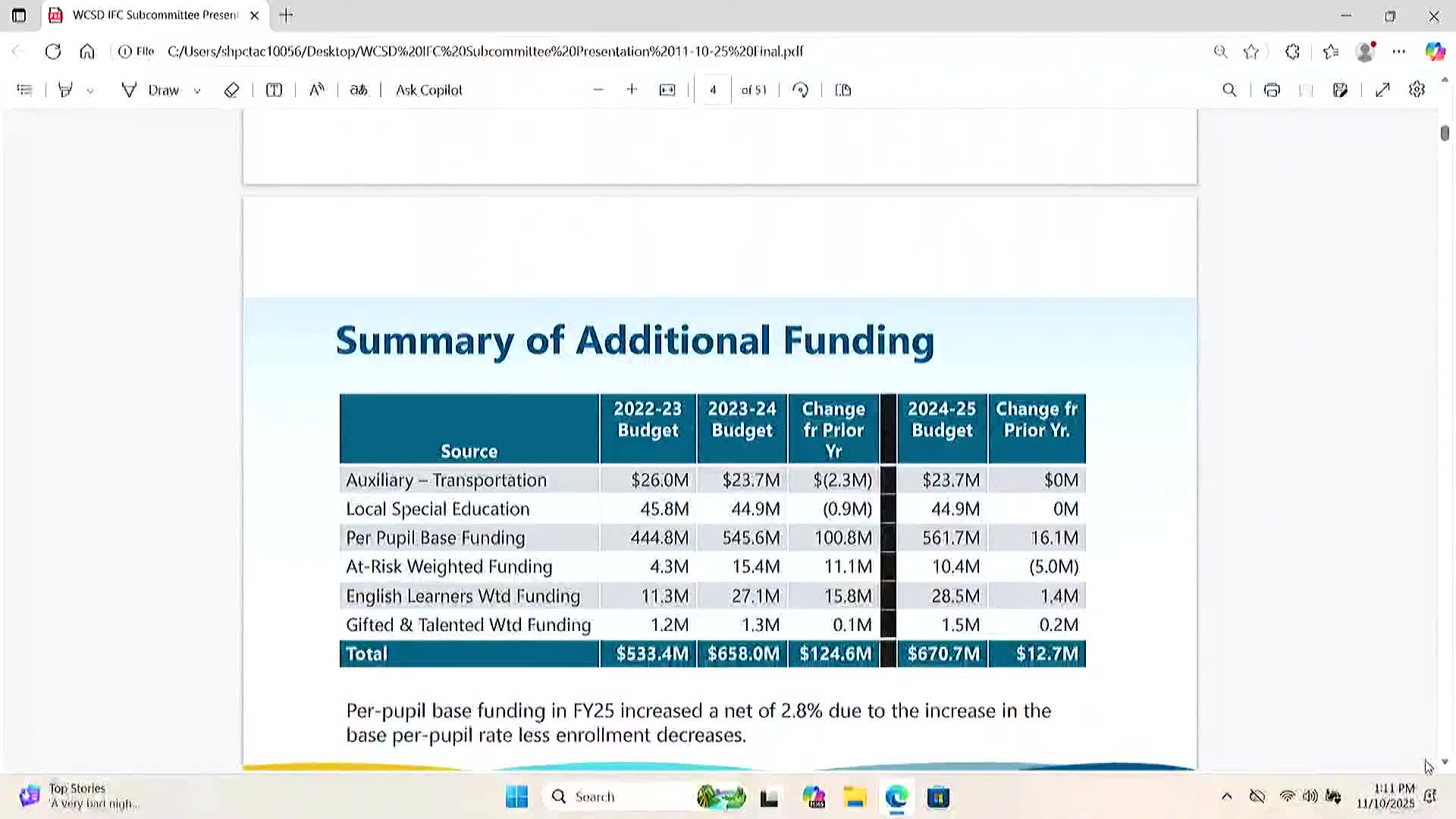Washoe County reports academic gains, warns of tightening 2026–27 budget
Get AI-powered insights, summaries, and transcripts
Subscribe
Summary
Washoe County School District told the Interim Finance subcommittee that historic 2023 funding produced measurable proficiency and attendance improvements and expanded career/dual-credit options, but the district faces flat future funding, declining enrollment and projected deficits that may require operational reductions.
Washoe County School District Superintendent Joe Ernst and CFO Mark Mathers told the Interim Finance Committee’s Subcommittee on Education Accountability that historic increases in base per‑pupil funding in the prior biennium enabled large investments—employee compensation, instructional coaches, English learner staffing and expanded extracurricular clubs—and produced notable academic gains.
Mathers said the district recorded its largest increase in student proficiency in Washoe history with third‑grade ELA and mathematics improving above pre‑pandemic levels in multiple grades. The district reported 71% of schools decreased chronic absenteeism and significant gains among collaborative schools targeted for extra resources. Washoe also expanded career and technical education, added 365 after‑school clubs beyond an initial 105, launched 66 new internships and estimated $4.3 million in tuition savings through dual/concurrent enrollment.
CFO Mark Mathers warned the subcommittee that the next biennium will be tighter: the district’s base per‑pupil amount rose only $3 (from $9,705 to $9,708) for FY26 and is projected to increase $73 the following year, while enrollment is declining. Mathers said the district started the FY26 budget planning process early and reduced central‑office spending by more than $7 million but still relied on fund balance to cover a projected shortfall; a preliminary FY27 deficit had been reported at $18.4 million and reduced through cuts to a current projected deficit of about $8.3 million. Washoe officials said they aim to avoid cuts at school sites but warned some operational service levels (transportation, operations) could be affected.
On staffing, Doug Owen, Washoe’s chief human resources officer, credited salary increases and Assembly Bill 49 provisional licensing with improved recruitment and retention; the district reported hiring about 278 new teachers over the summer, including in‑state, out‑of‑state and international recruits, and noted reduced certified time‑to‑fill. Legislators pressed on dual credit transferability, class‑size reductions and the district’s phone‑away policy; Washoe said it would provide specific class‑size counts in writing, described its phone‑away pilot and noted some schools use bell‑to‑bell bans.
